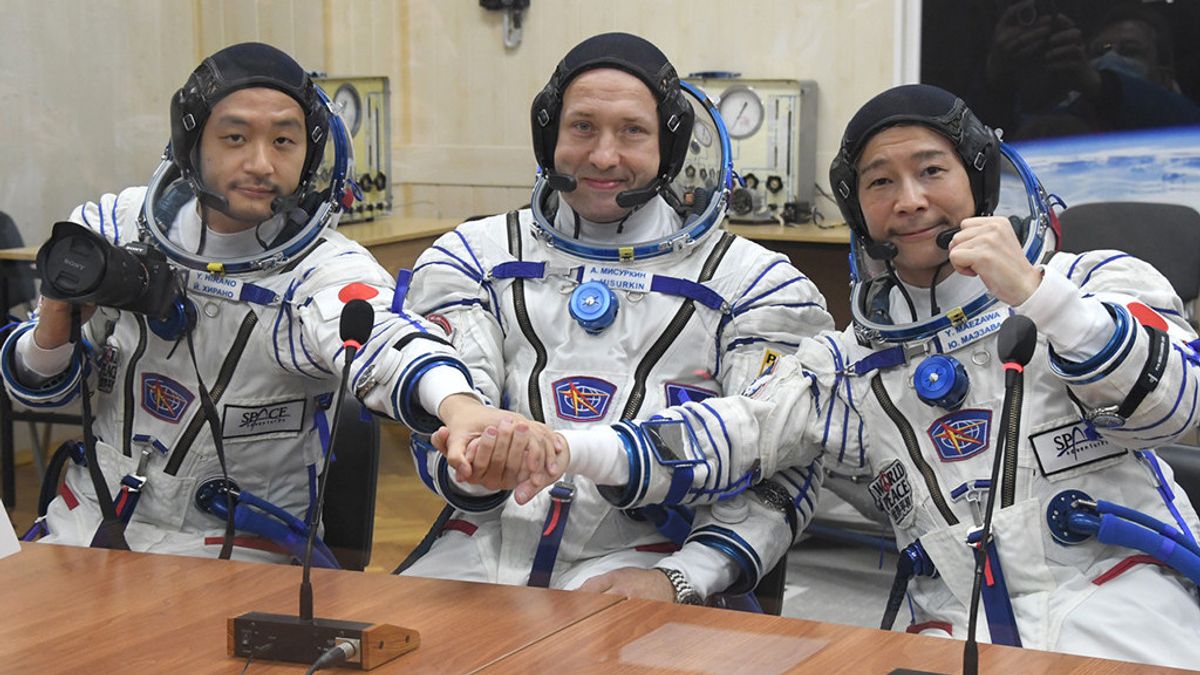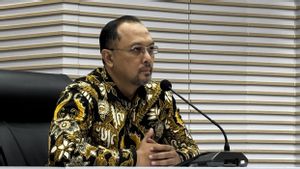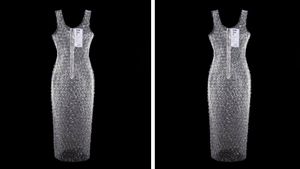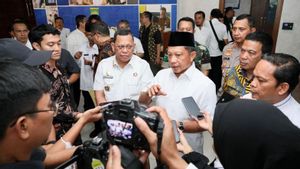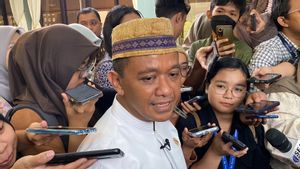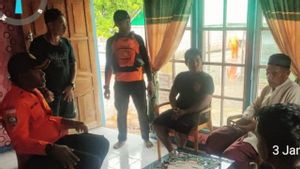JAKARTA – Yusaku Maezawa, a Japanese billionaire, returned to Earth on Monday, December 20 after 12 days on the International Space Station. On the ISS he makes videos about mundane tasks in space including brushing teeth and going to the bathroom.
His successful trip has marked Russia's return to space tourism after a decade-long hiatus and has seen competition rise from the United States.
Online business tycoon Yusaku Maezawa and his assistant Yozo Hirano landed by parachuting into Kazakhstan around the expected landing time on Monday, along with Russian cosmonaut Alexander Misurkin.
Footage from the landing site, about 150 kilometers (90 miles) southeast of the city of Zhezkazgan in central Kazakhstan, shows the trio smiling after being helped out of the Soyuz descent module and into an evacuation vehicle in freezing and foggy conditions.
"The crew felt good," said a commentator on NASA TV, translating comments from Russian mission control.
Russia's defense ministry said on Sunday December 19 that Maezawa and Hirano would be surprised by the recovery crew with a traditional Japanese noodle dish.
When the three space explorers arrived at the ISS on December 8, they were joined by a crew of seven involved in research into space biology and physics.
The trio spent 12 days in an orbiting laboratory where Japanese tourists document their daily lives aboard the ISS for the popular YouTube channel Maezawa.
Speaking to his one million followers on YouTube, the 46-year-old billionaire explained how to brush his teeth and go to the bathroom in space. In one of the videos, he explains in detail the affairs of defecating on the ISS.
"Peeing is very easy," he said, demonstrating the handheld funnels that astronauts use to suck up their urine.
In another video, he shows his followers how to properly drink tea and sleep in zero gravity.
Going forward, Maezawa plans to take eight people with him on a 2023 mission to circle the moon, operated by Elon Musk's SpaceX.
He and his assistants are the first private Japanese citizens to visit outer space since journalist Toyohiro Akiyama traveled to Mir station in 1990.
Their return from space capped off a year that many saw as a turning point for private space travel.
Billionaires Elon Musk, Jeff Bezos and Richard Branson all made inroads into commercial tourism flights this year, and broke into the market Russia is looking to defend. Russia has had a history of sending self-funded tourists into space.
In partnership with US-based company Space Adventures, Russian space agency Roscosmos has previously taken seven tourists to the ISS since 2001 - one of them twice. The latter was the founder of Cirque du Soleil Canada, Guy Laliberte, in 2009, who was dubbed the first clown in space.
In October, Russia launched its first untrained or amateur cosmonaut into space since Laliberte's voyage. They escorted a Russian actress and director to the ISS, where they shot scenes for the first film in Earth orbit.
Moscow has stopped sending tourists into space after NASA shut down the Space Shuttle in 2011, giving Russia a monopoly on supplying the ISS.
NASA ended up buying all of the Soyuz's launch seats for a reported $90 million per spot, effectively ending tourist flights.
But that changed last year when the SpaceX spacecraft managed to send its first astronauts to the ISS.
NASA began buying flights from SpaceX, stripping Russia of its monopoly on flying into space and causing losses to the Russian space agency, which was short of millions of dollars in revenue in recent years.
While the cost of tickets to space for tourists has not been disclosed, Space Adventures has indicated they are in the $50-60 million range.
Roscosmos plans to continue growing its space tourism business, commissioning two Soyuz rockets for such trips.
The English, Chinese, Japanese, Arabic, and French versions are automatically generated by the AI. So there may still be inaccuracies in translating, please always see Indonesian as our main language. (system supported by DigitalSiber.id)
